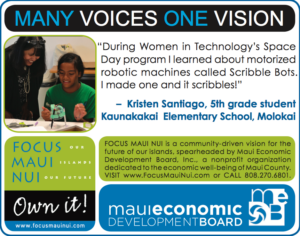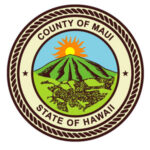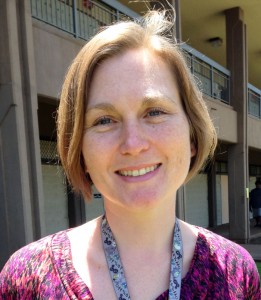
Apr 23, 2014 | Education, Stemworks

Sadie Mossman holds a perfect attendance record at the Hawaii Science Technology Engineering and Math (STEM) Conference presented by Maui Economic Development Board. “MEDB always brings in great resources at the conference and I come away every year learning something,” said Mossman, a 13-year teaching veteran from King Kekaulike High School.
For the fifth consecutive year, the STEM conference is expected to draw hundreds of students statewide to Maui to celebrate STEM learning projects and connect with others who share their interests in science and technology, math and engineering. Experts from innovative companies such as Google and National Geographic provide hands-on STEM lessons and help conference participants apply their STEM skills in competitions. Professional development workshops for teachers are also offered at the conference. A limited number of spots are still open for the first day of the conference – May 2nd from 8:30 a.m. to 4 p.m., at the Wailea Marriott Resort & Spa. Cost is $20 per teacher and includes lunch. The online registration link is: http://stemconference2014.eventbrite.com. Contact Lesley Bristol at bristol@medb.org or call 875-2332.
Mossman, who teaches biology and bio-technology to 10th-, 11th- and 12th-graders, said the annual conference has challenged her and her students to approach lessons in science, math and technology in ways they’ve never done. “For me in science, it’s helped me get comfortable with the Internet and the different resources and teaching tools available,” she said.
“It also helps to create a bridge between what my students want to do and what resources are available.” Mossman said she appreciates the opportunity to connect with experts in the science and technology field as well as teaching peers from around the state. “MEDB and the STEM conference really provide an opportunity for teachers to create connections and collaborate,” she said.
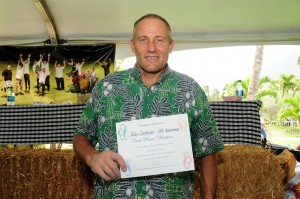
Apr 16, 2014 | Community, Sustainability

Haiku resident John Cadman’s career as a hotel sous chef, a school cafeteria manager and now the owner of a locally sourced food business has always focused on healthy alternatives. “I just felt like it was my destiny,” Cadman said, referring to his newest venture as the owner and sole operator of the Maui Breadfruit Company and Pono Pies. Cadman earned first place at the 2014 Hawaii Food Products Recipe Contest for his Maui ‘Ulu Hummus during the Maui County Ag Festival.
After working for 18 years in cafeterias at Haiku Elementary, King Kekaulike High School and Kamehameha Schools Maui, Cadman found himself studying, cooking and eventually promoting the use of breadfruit in daily living. “There was like this huge hole, vacuum, with breadfruit. I was so inspired, I decided to go with it,” he said. He launched Pono Pies, gluten-free, dairy-free desserts served up at local restaurants and sold at retail outlets. The pies made their debut at Whole Foods Market in Kahului just this month. The Maui ‘Ulu Hummus features breadfruit, macadamia nuts and lemon juice as its primary ingredients. Cadman says 90 percent of the hummus comes from local island sources. “Localized food sources make a lot of sense, and it allows us to be healthy,” he said.
“I think people are eating with a conscience,” Cadman said, noting a national shift away from processed foods and items with high sugar and high fat content. “We’re all more conscious now of the leading causes of obesity, diabetes and cancer and most of them are causes by lifestyle choices, especially diet,” he said. As the winner of the Hawaii Food Products Recipe Contest, Cadman will receive assistance from Maui Food Technology Center consultants with nutritional labels or food science services. “I’ll take all the help I can get,” Cadman said.
The Maui Food Technology Center is an organization dedicated to growing Hawaii’s food industry and connecting students, food producers and farmers through the practice of food science. The Maui Economic Development Board is a founding member of the Maui Food Technology Center, and MEDB President and CEO Jeanne Skog serves on its board of directors.
“Eating consciously entails eating food that’s healthier for the body, the environment and for the planet.” — John Cadman, Owner and operator of the Maui Breadfruit Company, Winner of the 2014 Hawaii Food Products Recipe Contest
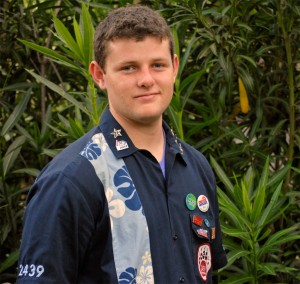
Apr 9, 2014 | Education, Stemworks

Baldwin High School robotics team captain Joey Albright has been accepted into six colleges with plans to pursue a degree in mechanical engineering. He says his experience with robot building and the task of writing grants to fund the robotics team helped him to succeed. “STEM education is important. It paid off for me,” said Albright, who has been on the Baldwin robotics team since his freshman year.
Albright took charge in his junior and senior year with applying for monetary support from the Maui Economic Development Board’s Ke Alahele Education Fund Program. “Getting money was number one for me. We can’t be competitive without funding,” Albright said. He said he gladly accepted the duties of grant writer because he wanted to improve his writing skills. “I thought it was a great opportunity to get experience and skills to apply for colleges and for scholarships,” he said. “I learned the importance of meeting deadlines, of dealing with different types of people and just working with a team. I think it was definitely worth it.” Albright said his fellow Baldwin Robotics Club members helped with writing for other private grants including Sean Endo and Aubrey Unemori.
Albright graduates in a few weeks, having competed on the state and national level. He said he would encourage new students to sign up for robotics. “The best thing for freshmen is to stick with it, no matter how much it takes,” Albright said. Since 2007, more than $740,000 in grants has been awarded to schools and students and their STEM education programs and projects. This year’s Ke Alahele Education Fund Dinner and Auction will be held Aug. 23 at the Grand Wailea Resort. Sponsorships opportunities are available. Contact MEDB at cari@medb.org; call 875-2300, or visit: www.medb.org/KeAlahele/overview.cfm
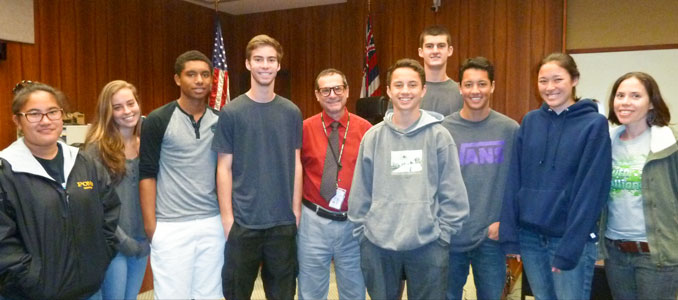
Apr 2, 2014 | Education, Stemworks
 For 16-year-old twins Jessie and Jordan Haylor, participating in a recent Maui Youth Alliance visit to 2nd Circuit Court in Wailuku was eye-opening. “It was such an incredible experience being able to converse with Judge Peter Cahill,” Jessie said. “I was unaware of the occupation of child advocacy, which truly interests me. I also learned about the Hawaii legal system, which is important for upcoming laws such as the new information regarding medical marijuana.”
For 16-year-old twins Jessie and Jordan Haylor, participating in a recent Maui Youth Alliance visit to 2nd Circuit Court in Wailuku was eye-opening. “It was such an incredible experience being able to converse with Judge Peter Cahill,” Jessie said. “I was unaware of the occupation of child advocacy, which truly interests me. I also learned about the Hawaii legal system, which is important for upcoming laws such as the new information regarding medical marijuana.”
Jordan said he saw the state’s criminal justice system at work. “I learned from this visit how criminals are prosecuted,” he said. The students in the Youth Alliance – a Maui Economic Development Board project to empower high school aged leaders – spent one morning observing 2nd Circuit Judge Peter Cahill preside over a variety of cases. His morning court calendar included granting an early dismissal of a man’s five-year probation; allowing a drug felon to take prescribed medicinal marijuana to treat a physical ailment; and a change of plea from a couple who chose not to contest welfare fraud charges. “I visited the courts once before for a law class I was in and this time we saw a lot more interesting cases, and I learned more because of the diversity,” Jordan said.
After the proceedings, Cahill, a lawyer with three decades of experience and now two years on the bench, met with the Youth Alliance members. “One is not better than the other. They’re different,” Cahill responded to Jordan’s question about whether he had a preference between serving as a lawyer or a judge. Jessie said she came to appreciate the criminal justice system. “I believe we are quite blessed to have such a justified legal system,” she said. With Cahill’s help, Jordan said the youths were able to compare the American justice system with those in other countries. Jessie said the visit to the Wailuku courthouse was her first Youth Alliance event, and she’s eager to participate more in the future. Jordan agreed. “Youth Alliance has helped open my eyes to how we can better our community and become more independent,” he said.
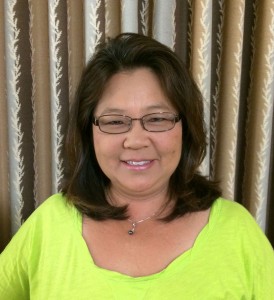
Mar 26, 2014 | Education

Students in kindergarten through 5th grade at Pukalani Elementary School are enjoying, even getting excited about, science these days, according to Curriculum Coordinator Jasmine Domingo. So much so, that more than 100 of them have been engaging in extracurricular, school-sponsored science camps, in part because of financial assistance from the Maui Economic Development Board Ke Alahele Education Fund. Last fall, MEDB awarded a $4,945 grant to Domingo and her school to purchase “Engineering is Elementary” curriculum and kits for the 500-plus pupils at the Upcountry school.
The purpose behind the new science curriculum and kits is to expose students to the many fields of science and increase their interest in the subject. “Oh yes, the kids are very excited about science,” Domingo said about the impact of the Ke Alahele grant at her school. “They say things like ‘This is so much fun’ and ‘I can’t wait to do science.’“ The mission of “Engineering is Elementary” curriculum and kits is to foster engineering and technological literacy among all elementary-aged students. Each unit is introduced by a storybook about a child who solves a problem through engineering and science. The material and exercises in the kits are all research-based and classroom-tested.
Domingo, a teacher with 22 years of experience and seven as a curriculum coordinator, said her school hopes to build confidence and provide encouragement to teachers to use science as a means to teach students about the world around them. “Science can be time-consuming, especially for elementary teachers who have to teach different subjects,” Domingo said. “Anytime you can make it easier for teachers to teach science, it’s a good thing.” Already one teacher has initiated her own science-based lesson plan. “I feel excited because I see that both teachers and students are seeing the effects of science in their everyday lives. Everyone’s learning.”
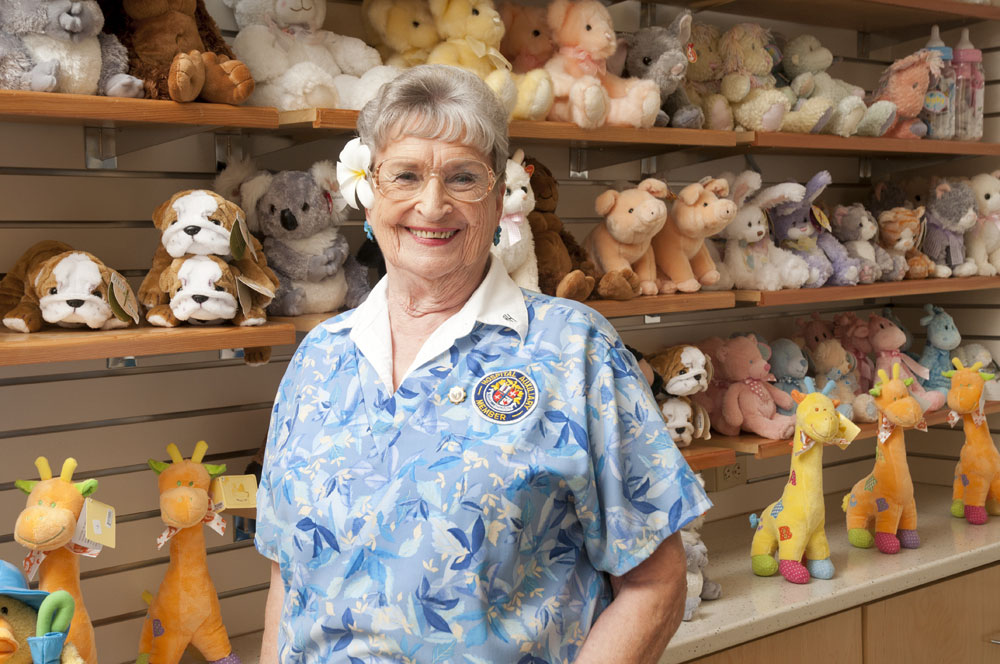
Mar 19, 2014 | Community
 For more than four decades now, Maui Memorial Medical Center Auxiliary members have poured time and energy into supporting the hospital’s mission to provide high quality medical services. The 62 active volunteers, according to President Amy Hanlon, give approximately 10,000 hours of service in 14 hospital departments on a yearly basis. Their work has included supporting patient care, operating a gift shop on the hospital grounds and organizing fundraisers that have contributed over the years more than $2 million in scholarships, hospital equipment and training.
For more than four decades now, Maui Memorial Medical Center Auxiliary members have poured time and energy into supporting the hospital’s mission to provide high quality medical services. The 62 active volunteers, according to President Amy Hanlon, give approximately 10,000 hours of service in 14 hospital departments on a yearly basis. Their work has included supporting patient care, operating a gift shop on the hospital grounds and organizing fundraisers that have contributed over the years more than $2 million in scholarships, hospital equipment and training.
Hanlon has been a volunteer since April 1989 after her husband, the late Dr. Marion Hanlon, suggested she give it a try. “I wanted to work wherever it makes a difference,” she said. She started off with supporting the billing department and today helps sort the mail on a regular basis. “I really enjoy it,” she said. The auxiliary is made of retirees, many of them former teachers, nurses, hotel workers and hospital employees. “I think we have a wonderful fellowship with all our volunteers, and the administration at the hospital is awesome with support and cooperation,” Hanlon said. The auxiliary, organized formally in 1968 by a group of 10 women, has partnered with the Maui Memorial Medical Center Foundation in some of its gifts to the hospital. Hanlon said she works with the administration before purchasing any items. The most recent gift – 50 bedside tables valued at about $30,000 – came about when the auxiliary learned the hospital was purchasing new beds.
“Our auxiliary does an incredible job of providing support wherever it’s needed within the hospital,” Chief Executive Officer Wesley Lo said. Lo, who serves as the chairman of the Maui Economic Development Board, said the volunteers are essential to the hospital’s operations. “They devote themselves to their work and are committed to helping us to fulfill our mission. … It’s also a meaningful way for people to give back to their community while helping others.”
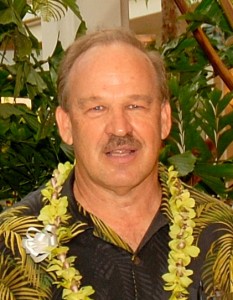
Mar 12, 2014 | Small Business
 At Betsill Brothers Construction Inc., business is more than building affordable homes and buildings. It’s about building relationships, a value inspired by the family patriarch, Doyle Betsill Sr. “We provide excellent service to our customers and our dad, who was a builder, taught us to build a better product for less than our competition,” said Dwayne Betsill, the company president and a board member of the Maui Economic Development Board. “We treat everyone with honor, regardless of their status and always respond to others the way we desire for them to respond to us. In our daily operations we choose to be fair and build a quality product for our customers.”
At Betsill Brothers Construction Inc., business is more than building affordable homes and buildings. It’s about building relationships, a value inspired by the family patriarch, Doyle Betsill Sr. “We provide excellent service to our customers and our dad, who was a builder, taught us to build a better product for less than our competition,” said Dwayne Betsill, the company president and a board member of the Maui Economic Development Board. “We treat everyone with honor, regardless of their status and always respond to others the way we desire for them to respond to us. In our daily operations we choose to be fair and build a quality product for our customers.”
Betsill Brothers began in the 1970s, with Doyle Betsill Sr., who taught his four sons a work ethic and foundation in the construction industry. The sons – Doyle Jr., Dwayne, Steve and Randy together founded Betsill Brothers on Kauai in 1993 to help repair the destruction from Hurricane Iniki. They moved to Maui a year later and started building 42 homes in Waiehu Terrace. Dwayne operates the company now. Steve died in 2002; Doyle Jr. has retired and Randy moved to Texas about nine years ago. The family business mission remains: To provide affordable housing in the islands. Betsill Brothers does a myriad of construction projects from residential homes to condominiums, commercial buildings and large remodeling jobs. The firm has had as many as 153 employees, many of whom are now subcontractors and vendors who partner on a variety of projects.
Betsill Brothers cut back staff to seven employees in 2007 to deal with an economic crash. Betsill said his company’s role in the economy is to provide jobs, especially through subcontractors. “We have built relationships and made good friends over the last 20 years, and that is our greatest success,” he said. Betsill supports MEDB‘s Ke Alahele Education program because: “I want to see our kids receive their education and return to the island and use their STEM education to improve our island.” The company also supports New Hope Maui, which mentors Maui students, and Feed My Sheep, a feeding program for needy residents. “Life is too short not to give back.”
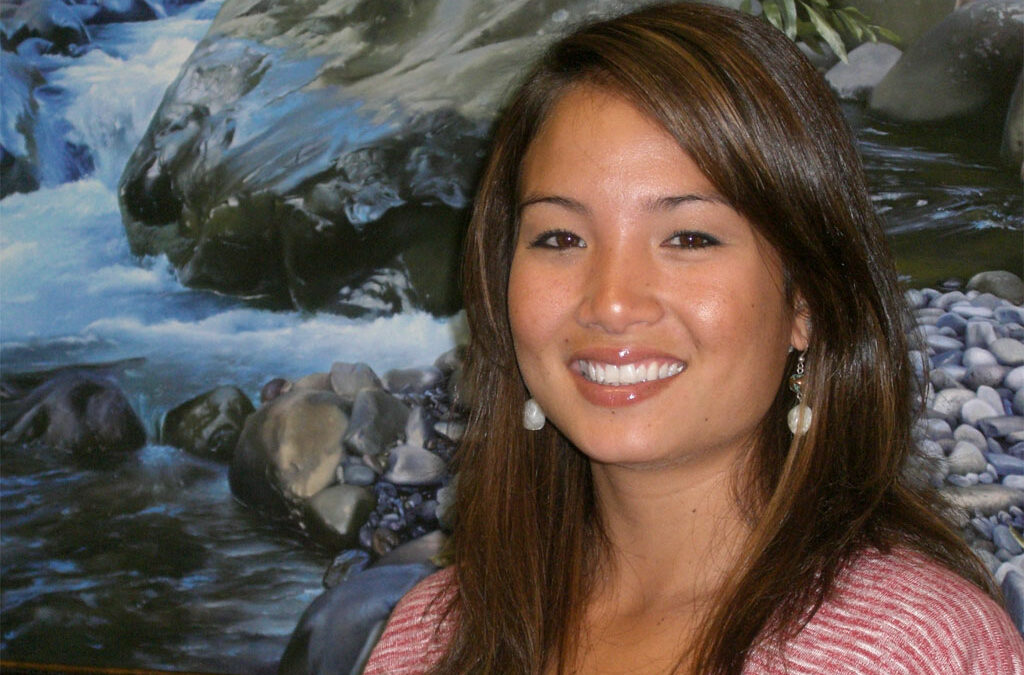
Mar 5, 2014 | Environment
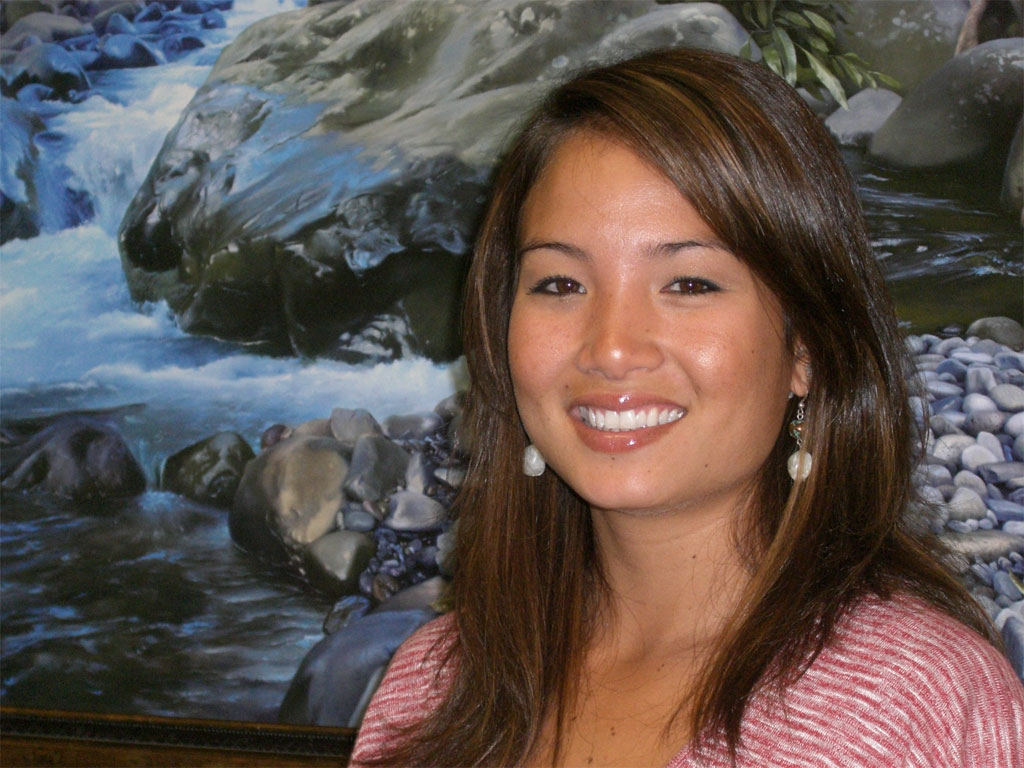 An environmental engineer is giving back by encouraging young girls to think about the possibilities in their future. Audrey Chihara, a 2004 Lahainaluna High School graduate, has been participating as a mentor in Introduce a Girl to Engineering Day since graduating with her own degree in environmental engineering. “I tell girls all the time I didn’t even know I could major in engineering,” Chihara said, following a visit by Kihei Charter School 7th- and 8th-graders at her firm, Brown and Caldwell in Wailuku. Chihara and her colleague, Irina Constantinescu, were amongst 24 engineers in Maui County who served as mentors and gave middle schoolers a peek into their careers.
An environmental engineer is giving back by encouraging young girls to think about the possibilities in their future. Audrey Chihara, a 2004 Lahainaluna High School graduate, has been participating as a mentor in Introduce a Girl to Engineering Day since graduating with her own degree in environmental engineering. “I tell girls all the time I didn’t even know I could major in engineering,” Chihara said, following a visit by Kihei Charter School 7th- and 8th-graders at her firm, Brown and Caldwell in Wailuku. Chihara and her colleague, Irina Constantinescu, were amongst 24 engineers in Maui County who served as mentors and gave middle schoolers a peek into their careers.
“We showed them there are a lot of different areas in engineering that they could get into, if they’re interested,” Chihara said. After graduating from high school, Chihara said she was unsure about what she wanted to study until she enrolled in Maui Economic Development Board’s Women in Technology program. She landed an internship at Hawaiian Telcom and made a connection with Brown and Caldwell where she’s been employed for about five years now.
Chihara recommends that young people interested in the field of science, engineering and technology enroll in plenty of science and math courses in high school and college. “Even if they don’t end up with a career, it’s really going to help them down the road,” she said.
As a mother of a three-year-old, Chihara said her career “provides a pretty good work and life balance.” She said the average engineer gets paid between $50,000 and $60,000 at her first job. After fielding questions and chatting with the Kihei middle schoolers, Chihara said she was grateful for the opportunity. “I get really excited for them. You can just tell that the wheels are turning, the light bulbs are lighting up and they’re really thinking about it.”
Maui Economic Development Board coordinates Introduce a Girl to Engineering Day, a nationally recognized event held annually during National Engineering Week. This year’s program drew nearly 50 middle school students in public and private schools on Maui and Lanai.
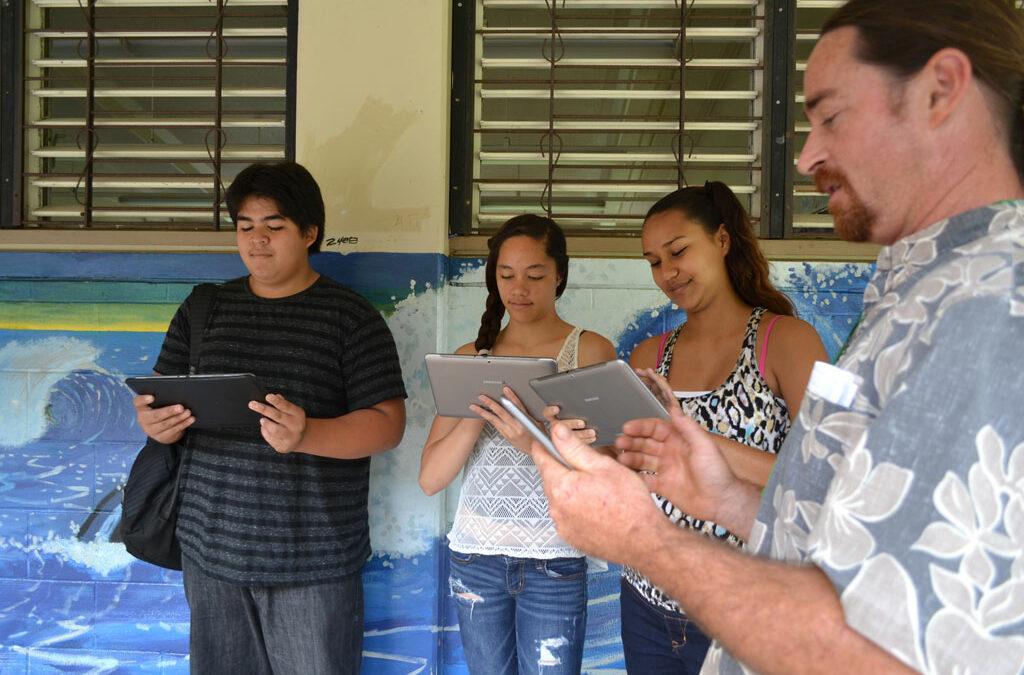
Feb 26, 2014 | Education
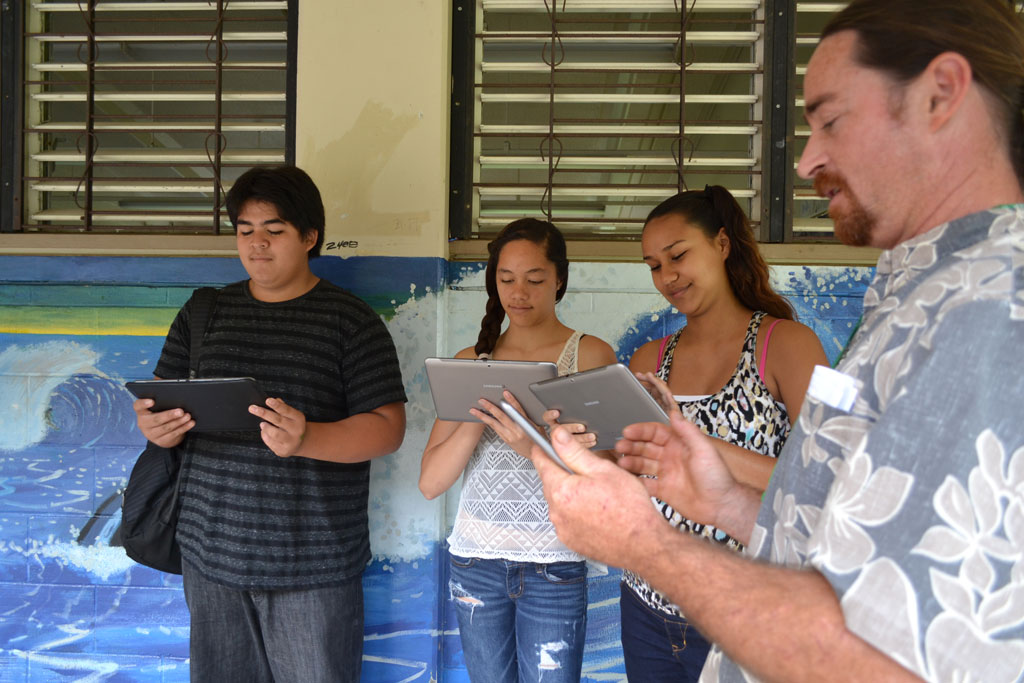 Hana High School science and natural resources teacher Paulo Burns says he and many of his students are visual learners, meaning that seeing is believing for them. So, when Burns and his students received 10 computer tablets, a projector, a laptop and a camera with a $5,000 Ke Alahele Education Fund grant, they were able to see what otherwise would be academic abstractions. “Science deals with teaching so many new vocabulary words and concepts that it is like teaching a foreign language,” he said. “If we don’t give our youth every tool at their fingertips to help them understand it, then many will give up easily and not pursue careers in science.”
Hana High School science and natural resources teacher Paulo Burns says he and many of his students are visual learners, meaning that seeing is believing for them. So, when Burns and his students received 10 computer tablets, a projector, a laptop and a camera with a $5,000 Ke Alahele Education Fund grant, they were able to see what otherwise would be academic abstractions. “Science deals with teaching so many new vocabulary words and concepts that it is like teaching a foreign language,” he said. “If we don’t give our youth every tool at their fingertips to help them understand it, then many will give up easily and not pursue careers in science.”
Burns’ students used the new tablets to study the voyages of crews aboard Hawaiian canoes as they navigated across vast expanses of the Pacific Ocean. “We wanted to provide students with tools of the 21st century to help them succeed in school,” he said. “We wanted to connect with Hawaiian culture through studying the canoe voyages and using modern computer tablets to blog questions to them. We wanted to make a Hawaiian compass at school to show the students that they will never be lost with the education they got at Hana School.” Burns said the tablets were successful in reaching his goals.
Burns said he believes it’s important for the community to support schools in the education of science, technology, engineering and math. “STEM is all around us in the real world, so it is critical that communities support it so that the next generation has the foundation to help solve the problems that we all face today,” Burns said. “We need to create problem-solvers that know how to use modern tools to come up with solutions.” Burns said he appreciates the Maui Economic Development Board and its Ke Alahele Education program. “MEDB was thoughtful to invest in the lives of our youth to help them succeed and create a better future.” The Ke Alahele Education Fund was established to support the growing need for students to gain proficiency in Science, Technology, Engineering and Math (STEM) in Maui County.

Feb 19, 2014 | Small Business, Sustainability
 On Wednesday, February 26, 2014, Maui Food Technology Center will hold their 1st Annual Supply and Service Expo at the Hannibal Tavares Community Center in Pukalani from 10 am to 3 pm.
On Wednesday, February 26, 2014, Maui Food Technology Center will hold their 1st Annual Supply and Service Expo at the Hannibal Tavares Community Center in Pukalani from 10 am to 3 pm.
This is the perfect opportunity for new or existing food producers wanting assistance with the many challenges of developing a product and getting it into the marketplace, entrepreneurs planning to expand their network opportunities and resources, and consumers interested in attending the tradeshow and hearing the latest from experts in the food manufacturing, distribution and hospitality industries.
A tradeshow comprised of national, state and local service providers will feature manufacturers and distributors of food, ingredients, equipment and packaging supplies; dealers, brokers and traders; business services and educational groups that work with the food and hospitality industries. Entrepreneurs and existing businesses will also have an opportunity to network with brand identity and marketing industry professionals.
Specialized presentations will be held throughout the event. Featured speakers include
- Dr. Aurora Saulo, Professor and Extension Specialist in Food Technology with the University of Hawaii Maui College on “Food Safety Certified: What Does That Mean?”
- Marc McDowell, Executive Chef of Makena Resort on “Developing Local Products From Start To Finish”
- Marty Parisien, Co-Owner/CEO at Singing Dog Vanilla on “Social Media Zen”
- Mike Abrams, President of Flavor Waves, on “Get Out There, Make Friends, and Help People.”
Door prizes will be drawn throughout the event, must be present to win. Attendees are also eligible to win a 32 GB i-Pad Mini, need not be present to win. The first 100 people will receive a free Expo tote. Public admission is free.
Major event sponsors include: County of Maui Office of Economic Development, Fred Baldwin Memorial Fund, and Tri-Isle Resource Conservation and Development.
For more information on becoming an exhibitor and/or attending the Supply and Service Expo, visit MauiFoodTechnology.org or call 888-948-6382.











 Hana High School science and natural resources teacher Paulo Burns says he and many of his students are visual learners, meaning that seeing is believing for them. So, when Burns and his students received 10 computer tablets, a projector, a laptop and a camera with a $5,000
Hana High School science and natural resources teacher Paulo Burns says he and many of his students are visual learners, meaning that seeing is believing for them. So, when Burns and his students received 10 computer tablets, a projector, a laptop and a camera with a $5,000 
